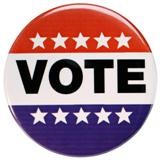
By Michael Burns, courtesy of SBAM Approved Partner ASE
Next Tuesday the country will vote in its midterm elections. By some accounts this election is likely to see a lot more people voting than normal. That means employers may see workers coming in late or leaving early or during the day to vote. Employers should be aware that in certain states employees taking worktime to vote are protected from employer discipline or discharge. In some states, workers must even be paid while out to vote.
What does Michigan’s law say about worker voter protection? In fact, it says nothing. Michigan law does not address time off to vote or offer any employment protection to employees that come in late or leave during or early from work to vote. Therefore, if the employer is concerned about employee tardiness or absence on election day they should be prepared to address this beforehand to head off problems or respond to questions about it.
But do keep in mind Michigan does have a law prohibiting employers from influencing their employees to vote a certain way. Michigan Compiled Laws, Chapter 168, Election Law, Chapter XXXV, Section 168.931.
Though ASE does not survey Michigan employers on whether they provide a policy or practice specifically addressing voting time off, many employers have Paid Time Off (PTO) benefits providing paid time in increments as low as 1- 2 hours for “personal reasons.” Absent an exclusion for such things as voting, this would allow the employee paid time off to vote. Time off to vote may also be accommodated by employer’s flexible scheduling programs that are becoming more popular.
Crain’s reported a number of larger local companies that have union contracts with incorporated paid time off to vote in the collective bargaining agreements. Ford, GM, DTE, and Consumers Energy union employees all have paid time off to vote in their contracts.
If an employer has facilities in other states, the employer should know the law in those states regarding voting time. 30 other states have laws that address and govern time off to vote. In many states that allow time off to vote, employers are prohibited from making deductions from an employee’s wages for at least part of the time the employee is authorized to be absent from work to cast a vote.
Missouri and California law requires employers to provide paid time off to vote. In Puerto Rico election days are a legal holiday. Similar to Michigan, Florida and New Hampshire have laws protecting voters from employers using or threatening force, violence, or any tactic of coercion, to induce or compel the person to vote or not vote for any particular candidate or ballot measure or refrain from registering to vote.
ASE’s CCH HRAnswers Now virtual library provides members a chart listing those states with time-off-to-vote laws, including information on which employees are covered, the amount of time that may be taken, special conditions under which time off may be taken, and penalties for employer violations of the laws. States that do not have time-off-to-vote laws are also indicated. The chart can be accessed here.